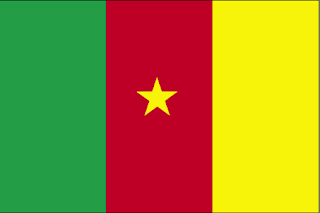Since it was announced that Buea
would host the reunification celebrations, unity and national identity have
suddenly become popular themes in mainstream Cameroonian discourse. In fact, they
have become a rhetoric of sorts. During talk shows on TV and radio, experts and
laypersons alike spar over the issues passionately. Words galore are peddled
as positions and convictions are affirmed. However two of the most recurrent words
during these intellectual fights are Anglophone and Francophone.
As mundane and sociological correct as they
may seem, these two words are the headache of policy makers because they often precede
and trump the desired feeling of national oneness. They also
provide most, if not all, Cameroonians, the Indomitable Lions and mechanical patriotic
sentimentality apart, with one of the most unambiguous definitions of self.
This begs the answer of what makes Cameroonians feel Anglophone or Francophone? What really constitutes or underlies these mostly parallel identities?
Some would argue that it is
mastery and use of one of the constitutionally – backed languages; English or
French. But then it is not uncommon to hear a
Francophone Cameroonian with an excellent command of English say,’Les anglos ci eh’, or an Anglophone Cameroonian with an equally good command of French say ,'These Francophones..', in jest though but in an attempt to indicate his/her difference from the other. This means that it is not because Cameroonians speak French or English that they identify themselves as Anglophone or Francophone. So what is it then? What makes Cameroonians consider
themselves Anglophone and Francophone? A generic approach to answering this
question will surely be accused of gross subjectivity and simplification of a
complex issue. So maybe the best option is to try another subjective but
personal approach. What makes this Cameroonian writer feel Anglophone?
Now that the question has been
asked, I must admit the answer is not easy. And I have come to the sudden realisation that my
Anglophoness could be an inheritance, nothing more than the unavoidable outcome of my birth to two
Anglophone parents. But then if this question was asked to my Dad and he
backtracked as I am doing, he’ll end with my late Grandfather who spent his life on the fringes and unaware of this socio-political divide. You can say he was an
Anglophone but more by default. For most Cameroonians being Anglophone or
Francophone is a belief so one can’t be an Anglophone or Francophone by default. I’ve hit a
brick wall and can no longer hide my head in the sand. So what makes me an Anglophone? Eh eh.....I am
finding it hard to start my answer by ‘I am an Anglophone because...’. So let
me rephrase. After some amount, just some amount I say, of introspection and retrospection, I THINK I am
an Anglophone because GENERALLY SPEAKING my stockpile of historical references
and aspirations are different from that of my Francophone brothers and sisters.
Simply put, I can see the Reunification as a bad deal and I want better
representation. Do my Francophone co-citizens share the same views just
enumerated? I think not.
From the highly subjective
foregoing, it seems that what makes Cameroonians Anglophone or Francophone is
their dissonant repertoire of perceptions about the buildings blocks for national building. Did I add that perception is everything? Or is their Anglophoneness or Francophoneness nothing more than an awareness of their respective non-Francophoneness or Anglophoneness? As I said earlier, this is no easy matter. Anyway
instead of trying to force feed Cameroonians, I beg your pardon. Instead of
trying to force feed Anglophone and Francophone Cameroonians with a manufactured sense of unity when history and time
so allow, our leadership should either convince us that we share common historical references and aspirations or start engineering them before these conjoined identities morph into radical
opposites.
Long live the Republic of Cameroon.

No comments:
Post a Comment